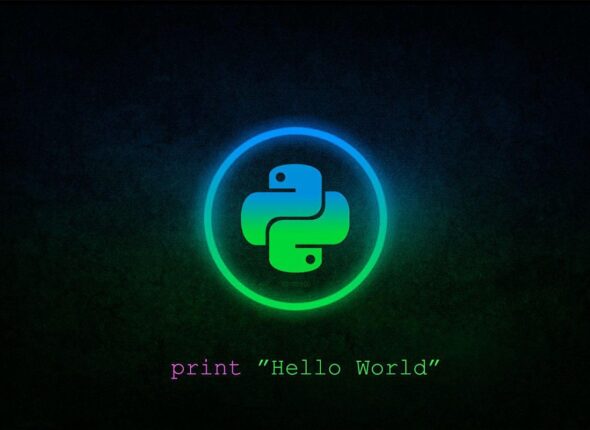What is Full Stack Development?
Full stack development refers to the practice of developing both the frontend (client-side) and backend (server-side) parts of a web application or software. A full stack developer is proficient in the frontend and backend technologies, as well as the necessary databases and other tools required for building a complete application.
Full stack developers possess a wide range of skills, allowing them to work on all aspects of web development, from designing user interfaces to managing databases and servers. This versatility makes them valuable assets in many development teams and projects.In this Full Stack developer course you can learn all trending technologies like MERN Stack, MEAN Stack and more.
Scope
The scope of full stack development is significant and continues to expand as technology evolves and businesses increasingly rely on web-based applications. The scope of full stack development is broad and encompasses various opportunities for employment, entrepreneurship, and personal growth. As long as web-based applications remain integral to businesses and industries worldwide, the demand for skilled full stack developers is expected to remain strong.
Job profiles in Full Stack Development
After learn this Full Stack Developer course you can take on various job profiles depending on your expertise, experience, and the specific needs of the organization. Here are some common job profiles of full stack developers:
- Full Stack Engineer
- Full Stack Web Developer
- Full Stack Software Engineer
- Full Stack Architect
- Junior Developer
- Associate Developer
- Web Development Apprentice
Hiring Companies

Salary Trends of Full Stack Developer

Who can Learn Full Stack Development Course?
Full Stack Development courses are typically designed for individuals who are interested in pursuing a career in web development and have a passion for technology. Here are some characteristics of individuals who can benefit from learning Full Stack Development:
- Beginners with Basic Computer Skills
- Students – High School & College
- Career Changers
- Professionals Seeking to Expand Their Skill Set
- Entrepreneurs and Start-up Founders
- Self-Motivated Learners
- Continuous Learners
Overall, Full Stack Development courses are open to individuals from diverse backgrounds and skill levels that have a passion for technology and a desire to learn and succeed in the field of web development. We also offer customized course on REACT.
Key Differentiators
Easy Courses differentiates itself from others in several ways to stand out in the competitive market. Here are some of those points for your ready reference.

Specialization: Focus on this specific industry segment within the field of technology training which makes us an expert in this domain.
High-Quality Content: Develop and deliver high-quality training content that is comprehensive, up-to-date, and relevant to industry dynamics. Invest in experienced instructors, subject matter experts, and instructional designers to ensure the content is engaging, informative, and effective.
Interactive Learning Experience: Offer interactive and engaging learning experiences that go beyond traditional lectures or presentations. Incorporate hands-on exercises, case studies, simulations, and real-world projects to enhance learner engagement and retention.
Flexible Learning Options: Provide flexible learning options to accommodate the diverse needs and preferences of learners. Offer both in-person and online training formats, self-paced and instructor-led courses, as well as blended learning approaches that combine online and offline components.
Personalized Learning Paths: Offer personalized learning paths or customized training programs to cater to the specific goals, skill levels, and learning styles of individual learners or organizations. Provide assessments, pre-tests, or skills gap analyses to tailor the training content and pace to each learner’s needs.
Industry Partnerships: Forge strategic partnerships with industries and technology vendors to enhance the credibility and relevance of the training programs. Collaborate with industry experts or guest speakers to provide insights and perspectives from the field.
Certifications and Credentials: Offer recognized certifications, credentials for completing training programs. Partner with certification bodies or industry leaders to provide certification exams or pathways that add value to the learners’ resumes and career prospects.
Career Services and Support: Provide additional support services such as career counseling, job placement assistance, resume writing workshops, or networking opportunities to help learners transition into new roles or advance their careers after completing the training programs.
Continuous Improvement: Continuously monitor and evaluate the effectiveness of training programs through learner feedback, performance metrics, and industry benchmarks. Regularly update and improve the content, delivery methods, and learning resources to ensure relevance and quality.
Customer-Centric Approach: Focus on building strong relationships with customers and learners by delivering exceptional service, responsiveness, and support throughout the learning journey. Listen to customer feedback, address their concerns promptly, and strive to exceed their expectations.
Modules / Syllabus
Python
Module 1: Introduction to Python
Module 2: Data Types and Operators
Module 3: Conditional statements
Module 4: Functions
Module 5: Error Handling
Module 6: File Handling
Module 7: Modules and Packages
Module 8: OOPs concept
Module 9: Iterator, Generator, Decorator, Closure
Module 10: Libraries (Matplotlib, Numpy, etc..)
Module 11: Graphical User Interface (Tkinter)
Module 12: MySQL Data Base connectivity
Mysql (Data Base)
Module 1: Installation
Module 2: Database ,Tables
Module 3: CRUD operations
Module 4: Keys(Primary key,foreign key,etc..)
Module 5: Clauses ,Operators
Module 6: Joins
Front end(HTML,CSS,JS)
HTML
Module 1: Formatting Tags
Module 2: Images, Hyperlink
Module 3: Grouping Using Div Span
Module 4: Lists, Tables
Module 5: Form,Form Validation,iFrame
CSS
Module 1: CSS TYPES
Module 2: Selectors
Module 3: Colour ,Text Fonts
Module 4: List ,Table Properties
Module 5: Box Model,Display Positioning
JavaScript
Module 1: Variables,Operators,data types
Module 2: Display methods
Module 3: functions,events
Module 4: if,switch,loop
Module 5: Validations
Django (Frame Work)
Module 1: Project creation,app creation
Module 2: Architecture
Module 3: Template rendering
Module 4: Jinja format
Module 5: Static website
Module 6: Login,Logout
Module 7: Authentications,Access control
Module 8: ORM
Module 9: Admin creation ,admin panel
Module 10: Email
Module 11: Dynamic Website
Hosting Tools
Git and GitHub Tools
Duration
5 months on Regular track and 3 months on Accelerated Learning Easy Courses also provides customized course content and corresponding duration on special requests. This is mainly applicable for companies nominating their employees for re-skilling.
Methodology
Easy Courses follow specific training methodologies for Full Stack Developer course that caters to diverse learning styles of participants while ensuring comprehension, retention, and practical application of concepts making this the Best Full Stack Developer Course. Here are some methodologies that can be employed:

- Lecture-based Learning
- Hands-on Practice
- Case Studies and Real-world Projects
- Group Work and Collaboration
- Feedback and Assessment
- Mentorship and Coaching
- Continuous Learning and Resources







